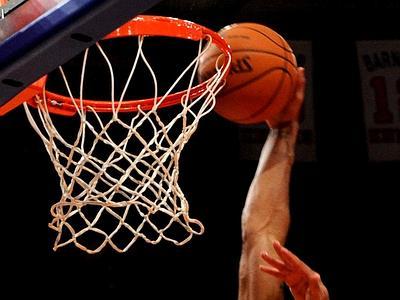NCAA Drug Testing Policy Overview
HOW are NCAA Drug Tests Administered?
The NCAA Board of Governors approved Proposal No. 30 at the January 1986 NCAA Convention and Proposal Nos. 52-54 at the January 1990 Convention, these approvals reaffirmed the NCAA institution’s dedication to the principal of fair and equitable intercollegiate competition including their championships and postseason bowl games.
The NCAA drug- testing program was created to ensure further steps were taken in the protection of the health and safety of the student-athletes competing. Furthermore, this was done to ensure that no one participant might have an artificially induced advantage and that no one participant might be pressured to use chemical substances to remain competitive, but most importantly to safeguard the health and safety of participants. The NCAA Board of Governors has final authority over the procedures and implementation of the NCAA drug-testing program.
All NCAA member institutions are subject to NCAA drug testing. The drug-testing program involves urine collection and laboratory analyses for substances on a list of banned-drug classes.
The NCAA Board of Governors have developed a list which consists of substances generally declared to be performance enhancing and/or potentially harmful to the health and safety of the student- athlete.
The NCAA drug testing policy bans the following classes of drugs:
- Stimulants
- Anabolic agents
- Alcohol (Alcohol Link/ETG) and beta blockers (banned for rifle only)
- Diuretics and other masking agents
- Street/illicit drugs
- Peptide hormones and analogues
- Anti-estrogens and
- Beta-2 agonists
NOTE: Any substance that is chemically- pharmacologically related to these classes is also banned. The institution along with the student-athlete shall be held accountable for all drugs within the banned-drug class regardless of whether they have been specially identified.
Examples of substances under each class can be found at www.NCAA.org/drugtesting. However, there is no complete list of banned substances.
The NCAA utilizes a system of banning substances by drug class, they also include related compounds which are included in the class due to their pharmacological action and/or chemical structure.
No substance belonging to the prohibited class may be used regardless of whether it is specifically listed as an example, unless specifically exempted and it is up to the student athlete to ensure they are not in violation of the NCAA Policy.
Positive Drug Test Levels Examples:
- caffeine, if the concentration in urine exceeds 15 micrograms/ ml;
- marijuana or THC, if the concentration in the urine of THC metabolites is equal to or greater than 5 nanograms/ml;
- testosterone, if the administration of testosterone or use of any other substance or manipulation has the result of increasing testosterone, or the ratio of testosterone to epitestosterone, or results in an adverse finding on IRMS.
The NCAA utilizes an approved laboratory for the analysis and confirmation of the student-athletes’ urine through mass spectrometry in conjunction with gas chromatography, liquid chromatography or isotope mass spectrometry, or other approved methods. The method of testing for erythropoietin (EPO) is isoelectric focusing (IEF) with immuno blotting, and other approved methods.
Here are some key points about the NCAA Program:
- Student-athletes are held responsible for use of all banned substances at all times.
- NCAA year-round testing may test for anabolic agents, diuretics and masking agents, peptide hormones, beta-2 agonists and beta blockers. Stimulants and street/illicit drugs are generally not tested in NCAA year-round testing.
- NCAA championship and postseason bowl-game testing may test for all banned drug classes, and include tests for street/illicit drugs and stimulants.
- Other testing occasions, such as exit tests, follow- up tests and suspected manipulation, may include testing for all banned-drug classes.
A student-athlete will be in breach of the NCAA drug testing protocol and treated as if there was a positive test for a banned substance other than a street/illicit drug as defined in bylaw 31.2.3 if the student-athlete:
- refuses to sign the notification form or custody and control form;
- fails to arrive at the collection station without justification as determined by Drug Free Sport;
- fails to provide a urine specimen according to protocol;
- leaves the collection station without authorization from the certified collector before providing a specimen according to protocol; or
- attempts to alter the integrity of the collection process.
The NCAA is committed to prevention of drug and alcohol abuse. NCAA bylaws require the director of athletics or his or her designee to educate student-athletes about NCAA banned substances and the products that may contain them. As a best practice, athletics departments should conduct drug and alcohol-education
The NCAA provides a drug-education framework for member schools to ensure they are conducting adequate drug education for all student-athletes.
Education Framework (beginning at orientation)
- Ensure that student-athletes sign NCAA compliance forms.
- Provide student-athletes with a copy of the written drug policies as outlined above.
- Verbally explain all relevant drug policies with student-athletes and staff:
- Discuss NCAA banned-drug classes
- Explain NCAA drug-testing policies and consequences for testing positive, including failure to show or tampering with a urine sample.
- Explain the risks of using nutritional/dietary supplements
- NCAA tobacco use ban during practice and competition.
- Conference and institutional drug-testing program policies, if appropriate.
- Street drug use policies and institutional sanctions for violations, if appropriate
The NCAA has approximately 480,000 Student-Athletes, 19,300 Teams, 1,100 Member Schools and 3 Divisions.
The NCAA equips student-athletes with skills to succeed on the field, in the classroom and in life. Graduating from college is as important as winning on the playing field.
For more information reading the NCAA drug testing policy or for help on creating and implementing your own drug free workplace policy, contact us today at 800-221-4291 or at www.accrediteddrugtesting.net

